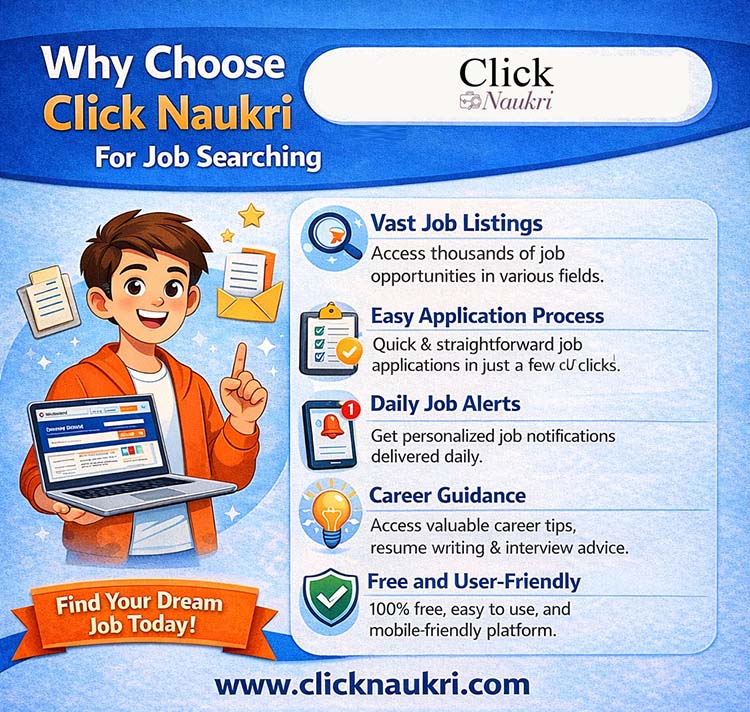10 Steps to Successfully Apply for Online Jobs in 2026
The digital revolution has transformed how we work, opening doors to countless opportunities from the comfort of our homes. Whether you're a fresh graduate, a stay-at-home parent, or someone seeking flexibility, the online job market offers endless possibilities. However, standing out in a sea of applicants requires strategy, preparation, and professionalism.
1. Identify Your Skills and Niche
Before diving into applications, take time for honest self-assessment. What are you genuinely good at? Perhaps you excel at writing, graphic design, customer service, or data analysis. Understanding your strengths helps you target positions where you'll naturally shine.
Create a detailed list of technical and soft skills. Examples of technical capabilities may include proficiency in software or coding languages or certain specialized knowledge. Soft skills include communication, time management, and problem-solving capabilities. This clarity will guide your job search and make your applications more focused and compelling.
2. Research Legitimate Platforms
Not all job boards are created equally. Reputable platforms such as LinkedIn, Indeed, FlexJobs, and Upwork have set up various verification processes to protect both employers and job seekers. Industry-specific websites tend to have specialized positions with better quality opportunities.
Take the time to read reviews and understand the fee structure of each platform. Some charge subscription fees, while others take commission from earnings. Beware of websites that require upfront payments for listing jobs, as most employers would not ask you for money in exchange for an application process.
3. Create a Professional Digital Footprint
Your online presence is your digital handshake. Start by setting up or refreshing a professional LinkedIn profile, complete with a photo, work history, and endorsements of your skills. Make sure your profile is complete and effectively communicates your achievements.
Consider creating a personal website or portfolio, if you are in creative fields. This indicates initiative on the student's part and provides an easy place for potential employers to review your work. Ensure all of the public social media profiles reflect the professional image you want to project.
4. Tailor Your Resume for Remote Work
Generic resumes seldom work for competitive markets. Tailor your resume for each application, emphasizing relevant experience and skills related to the job description. Use keywords from the posting naturally throughout your document.
Emphasize remote work capabilities such as self-motivation, digital communication skills, and experience with collaboration tools like Slack, Zoom, or Asana. If you've managed projects independently or have any prior experience working remotely, make sure these are highlighted. Quantify your achievements wherever possible using specific numbers and results.
5. Write Compelling Cover Letters
A well-written cover letter can separate you from dozens of other similar candidates. Begin with an attention-grabbing hook, then explain how you are specifically interested in the company and position. Remember not to simply spin your resume into paragraphs, but to tell a story and connect your experience to their needs.
Research the company inside and out, mentioning some particular things about them that you connect with. Perhaps their mission, the company culture, or even product usage is something you admire. This personalization indicates a genuine interest rather than mass application tactics.
6. Prepare for Virtual Interviews
For video interviews, technical preparations are highly important. Make sure to check your internet connection, your camera, and your microphone well in advance. Find a quiet place with good lighting and a professional background. Natural lighting from a window in front of you works great.
Practice general interview questions and prepare insightful questions about the position, work team, and company culture. Look up the STAR technique: Situation, Task, Action, Result-a great method to answer behavioral questions effectively. Dress professionally, even for virtual interviews, as it helps build confidence and respect.
7. Provide Your Portfolio or Work Samples
Actions speak louder than words. Whenever possible, include links to relevant work samples, case studies, or projects in your application. For writers, share published articles. Designers should present a diverse portfolio. Developers can link to GitHub repositories or deployed applications.
If you lack professional samples, create spec work or personal projects that demonstrate your capabilities. Contributing to open-source projects, writing blog posts, or designing mock campaigns all serve as legitimate portfolio pieces.
8. Follow Application Instructions to the Letter
In remote work, where written communication dominates, attention to even the little details counts. Whether it's providing certain information, the format of a document, or asking you to include a particular phrase in your subject line, do precisely as instructed by an employer.
Missing these details insinuates carelessness or inability to follow directions-both signals of caution for a remote position. Always double-check for spelling, grammar, and all attachments before submitting.
9. Network and Leverage Connections
Most opportunities don't make it onto the public job boards. Engage actively in the online communities related to your field: participate in discussions on LinkedIn groups, subreddits, or dedicated forums. Provide value by means of comments that are helpful and insightful, not self-promotional.
Reach out to former colleagues, classmates, or professional contacts. Let people know you're seeking opportunities, but be specific about what you're looking for. Informational interviews with people working in your target companies can provide valuable insights and potential referrals.
10. Be Persistent and Follow Up on Applications
Job searching is a long and sometimes tedious process that requires patience and organization. Set up a spreadsheet to track where you have applied, dates of application, when follow-up should be made, and interview statuses, which will prevent repeated applications and allow timely communication.
Don't be deterred by rejections and non-responses either. Most job seekers apply to many positions before they get job offers. Make every application a learning experience. Always refine your approach in light of new feedback and results. Consider seeking feedback from interviews that don't result in a job offer.
Final Thoughts:
Successful landing of remote positions requires more than just submitting applications; this requires strategy, professional presentation, and persistence in follow-through. The flexibility and opportunities online work brings will be well worth the investment.
Keep in mind that successful remote work is a marathon, not a sprint. Be authentic with your applications, keep improving your skills, and be professional in the process. Eventually, with time and effort invested into the right approach, you'll find opportunities that fit your talents and lifestyle goals.
Begin following these steps now, and you will emerge as one of the best candidates in the competitive online job mark
Frequently Asked Questions (FAQs):
1. Which are the best websites to apply for online jobs?
The most reputable ones include LinkedIn, Indeed, FlexJobs, Upwork, Fiverr, and Remote.co. More specialized fields might want to refer to industry-specific job boards. Always research platforms before you create accounts to ensure they're legitimate and align with your career goals.
2. How long does it usually take to get hired for an online job?
The timeline will vary a lot based on positions, industry, and competition. On average, you can expect anything from two weeks to three months. Entry-level jobs might move quicker, while specialized jobs often entail multiple interview rounds that take longer. The key is to apply consistently.
3. Do I need previous experience to apply for online jobs?
Not necessarily. Many entry-level remote positions welcome beginners, particularly for virtual assistance, data entry, content writing, and customer service roles. Highlight your transferable skills from your previous roles and try to build up a portfolio through freelance projects or volunteer work that can add more value to your application.
4. How can I avoid online job scams?
These are the red flags: requests for upfront payment, unclear job descriptions, promises of unrealistically high earnings, poor communication, and a urge to make decisions hastily. No reputable employer will ever request money as part of the hiring process. Do your research on companies; check reviews, and listen to that little voice in your head if you think something seems fishy.
5. Should I apply for jobs even though I don't fulfill all of the requirements?
Absolutely. Most job descriptions represent ideal candidates, not minimum requirements. If you match 70 to 80% of the qualifications and feel confident you can learn what you don't know, then apply. Many employers value enthusiasm, cultural fit, and the willingness to learn over perfect credential matches.
6. How many jobs should I apply to daily?
Quality matters more than quantity. Aim for 5-10 well-tailored applications daily rather than sending generic resumes to dozens of postings. Customizing each application significantly improves your success rate compared to mass-applying with identical materials.
7. What equipment do I need to work online?
Basic requirements are: a reliable computer, stable internet connection, and quiet workspace. Specific tools depend on your field but may include headphones with microphone, webcam, and relevant software. Most employers outline the technical requirements in job postings.
8. Can I negotiate salary for online jobs?
Yes, salary negotiation for remote positions is as natural as it is in traditional jobs. Research industry salary standards for your position and experience. Make a professional case for yourself, emphasizing your value and unique qualifications. Many employers expect some negotiation.
9. How do I manage time zone differences in online jobs?
Make expectations of working hours and meetings very clear during the interview process. Some roles require availability during a certain timezone; others offer complete flexibility. Use scheduling tools, world clocks, and clear communication for effective team coordination across regions.
10. What happens if I apply and never hear back?
Follow up politely 7-10 days after application submission if you haven't received a response. Send a brief email reiterating your interest and qualifications. However, many companies receive hundreds of applications and may not respond to everyone. Continue applying to other opportunities while waiting.
Thank you for reading 🙂
------------------------------------------------------------------------------------------------------------------
Read more blog click here
Follow us on Instagram













